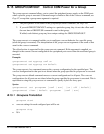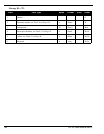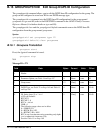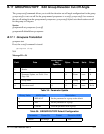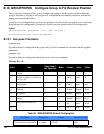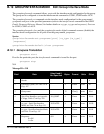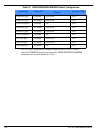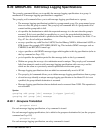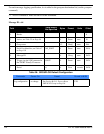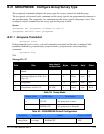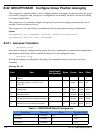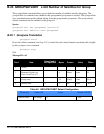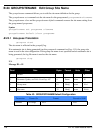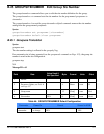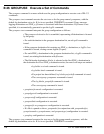
DL-V3 User Manual Rev 3 111
B.20 GROUPLOG Edit Group Logging Specifications
The grouplog command allows you to modify the message-logging specifications in a group. A
maximum of 20 message-logging specifications is supported.
The grouplog add command allows you to add message-logging specifications to a group.
• The message-logging specification is added to a group named group. If a group named group
does not exist, the group is created. The grouplog add command fails if a group needs to be
created and the group table is full.
• dst specifies the destination to which the requested message is to be sent when the group is
executed. If dst is not specified (or specified as no_port), the group-default destination is
assumed (the destination which is specified at the time the group is executed). See Table 17 on
Page 87 for a list of valid port identifiers.
• message specifies any valid NovAtel ASCII, NovAtel Binary, NMEA, Abbreviated ASCII, or
RTK-format (for example, RTCAOBS) OEMV log. This includes OEMV messages such as
CMRPLUS and RTCMV3 format logs.
• trigger specifies a valid OEMV message trigger which applies to this log specification (refer to
the log command on Page 122).
• period specifies the repetition period for this message (refer to the log command).
• Within one group, the message-dst combination must be unique. The grouplog add command
fails if an attempt is made to add a message-logging specification with a message and dst
which are the same as a previously-entered specification in the same group.
• Message-logging specifications that are added are automatically saved to NVM.
• The grouplog del command allows you to delete message-logging specifications from a group.
• dst and message identify a unique message-logging specification to be deleted. If dst is not
specified, the group-default destination is assumed.
• Message-logging specifications that are deleted are also removed from NVM. This operation is
not reversible.
Syntax
grouplog add group [dst] message [trigger [period]]
grouplog del group [dst] message
B.20.1 Groupuse Translation
groupuse start
For each message-logging specification, a log command is issued.
For each message-logging specification, dst is added to the groupuse destination list (see the groupuse
command on Page 118)
groupuse stop
For each message-logging specification, an unlog command is issued.



